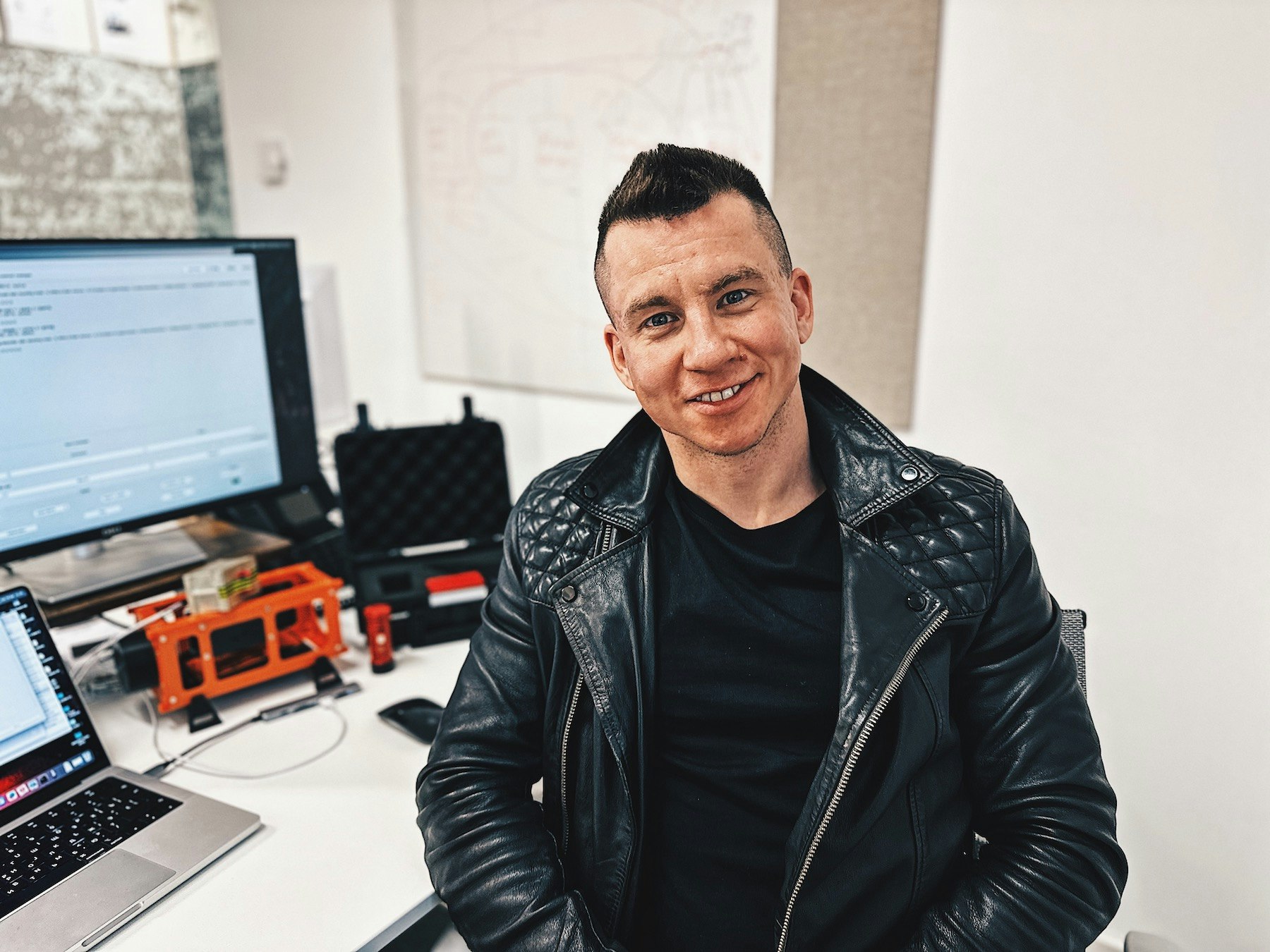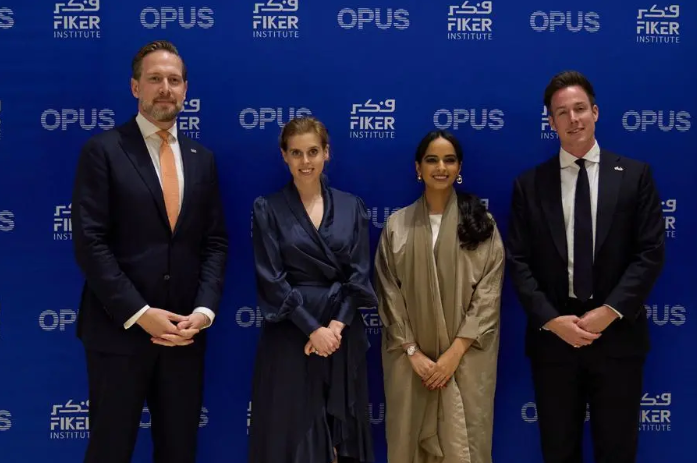Founders launch startups for all sorts of reasons. Some do it to bring a breakthrough technology to market, others do it in the hope of a big payday when they sell their business. But one section of the workforce starts their own company because they don’t feel like they have a choice.
It’s estimated that around 15% of the UK population have some form of neurodiversity. A study published in March 2023, however, found that 64% of entrepreneurs who fall into that category said that starting a company felt like their only option when it came to building a career.
“There’s nothing more frustrating than being stuck in a system you can’t change,” says Amy Williams, founder of Adtech startup GoodLoop, who has dyslexia. “The moment I started my own business, that feeling went away.”
She’s not alone in feeling like that: the research also found that two-thirds of neurodiverse founders have felt the need to hide or mask their differences in professional settings to fit in.
“I can completely understand why there would be a correlation between neurodiversity and founding companies: if you don't feel you fit in a current structure, the most obvious thing to do is to build a new one,” says Williams.
Communicating differences
In the professional world where communication and relationship building are seen as highly valued skills, some neurodiverse founders can feel like they’re often misunderstood.
“As long as I can remember, there have been unexplained episodes where things were received differently to how I intended them to be,” says one founder with autism, who preferred to stay anonymous to avoid sharing their diagnosis publicly.
“Up until a few years ago, I had no idea why I was struggling so much.”
After working as an engineer in larger businesses, he became acutely aware of how his neurodiversity was leading to miscommunications, which were affecting his mental health.
But later experiences of working in smaller organisations felt like safer spaces to express himself and connect with his colleagues.
“It’s easier to build relationships with just a limited number of people where there are no politics and you can be straightforward… If you're too straightforward accidentally, you can just apologise and things have settled,” he says, contrasting it to the more daunting environment of bigger corporations. “If you say something accidentally publicly, like in a meeting, you can't really go to 30-plus people and explain that this isn't what I meant.”
Creating safer spaces
At GoodLoop, Williams has implemented strategies to try and accommodate people’s differences and avoid these misunderstandings — and she was partly motivated to do so by an incident in her childhood.
“I have a very visceral memory of being shamed as a young kid: I remember a teacher standing up in class and saying, ‘This is the day Amy Williams learns how to write the word read’ and she held up my homework. That public shame for not being able to spell, that's something I've really carried with me,” she says.
It isn't intended to put people in boxes or define anyone — the main reason we do those tests is just to emphasise the differences between people.
“I always felt let down by that teacher: it's not about shaming or saying that it's wrong, it's about setting people up to allow for their differences.”
Williams has now introduced a ‘how to work with me’ document as part of the onboarding process for new employees, where they can share any neurodivergence or preferred ways of working if they feel comfortable to.
Each employee also does a Myers-Briggs assessment which assigns a four-letter personality type based on their preferences and traits, and everyone is mapped on a visual grid to highlight the diversity in personality types. There are then e-learning courses on how to communicate with people with different personality types, and everyone’s preferences are accessible on a shared drive.
“It isn't intended to put people in boxes or define anyone — the main reason we do those tests is just to emphasise the differences between people,” says Williams.
Being open about his diagnosis is also one way that Alex Pospekhov, founder of satellite startup MissionSpace, tries to educate others.
“I communicate loud and clear about my ADHD,” he says. “It’s just another way for your brain to work; not better or worse than others, it’s just different.”
But he also acknowledges that other, less experienced founders might not feel the same level of security when it comes to being transparent about their differences and needs.
“Maybe now I’m in a position to do it — I’ve got the background and a very good track record,” he says.
Secret strengths
Since receiving his ADHD diagnosis in 2021, Pospekhov asks for accommodations from his team to help him be as productive as he can be. These can be surrounding common traits of the condition like “task avoidance,” which Medical News Today describes as the tendency for people with ADHD to “hyperfocus on tasks they deem interesting but procrastinate over tasks they deem tedious”.
“Nothing in the world will make you start doing things you don’t want to,” says Pospekhov.

He’s dealt with this by learning that he has to outsource certain types of tasks to colleagues or external service providers, but he does add that he’s also used his ADHD to his benefit as a founder.
“You are less risk averse because you don’t feel the same level of fear,” he says, which helps when making decisions with a potentially high pay-off that neurotypical founders might be too wary of.
The anonymous founder also says that their experience with neurodiversity has set them up to cope with seeing important details as they grow their business.
“I'm super focused on problem-solving,” they say; “I’m a problem spotter and a problem solver kind of person — and that works really well when you are building something.”
And after the mental effort of explaining his misconstrued words, repairing relationships and trying to mask his differences, he says that the turmoil of being a founder felt like a familiar experience: “One day you are upbeat and the next day you are downbeat, and ‘normal’ people break — but I was very much used to that already,” he says.
It’s a similar story for Williams. Though she struggles to process long emails and chunks of text — and has told her team that Slack or WhatsApp are the best ways to get urgent requests to her — the way she has had to navigate her dyslexia lends itself to being a versatile leader.
“We live in the written world, so I’ve had to adapt,” she says. “The way our minds think is typically much more flexible. You have to build habits and systems that allow you to overperform.”
Having positive neurodiverse role models was also a major encouragement, she says, proving the value of representation in the industry. “I think I was about 15 when I learned that Richard Branson was dyslexic, and it felt so incredible,” she says.
“He always was a big inspiration of mine [and] to discover that he had the same neurodiversity that I did was to be empowered and to think, ‘Wow, he's so talented, and maybe his dyslexia is part of what made him brilliant.’ If he hadn't talked about it, I would have never had that moment.”


